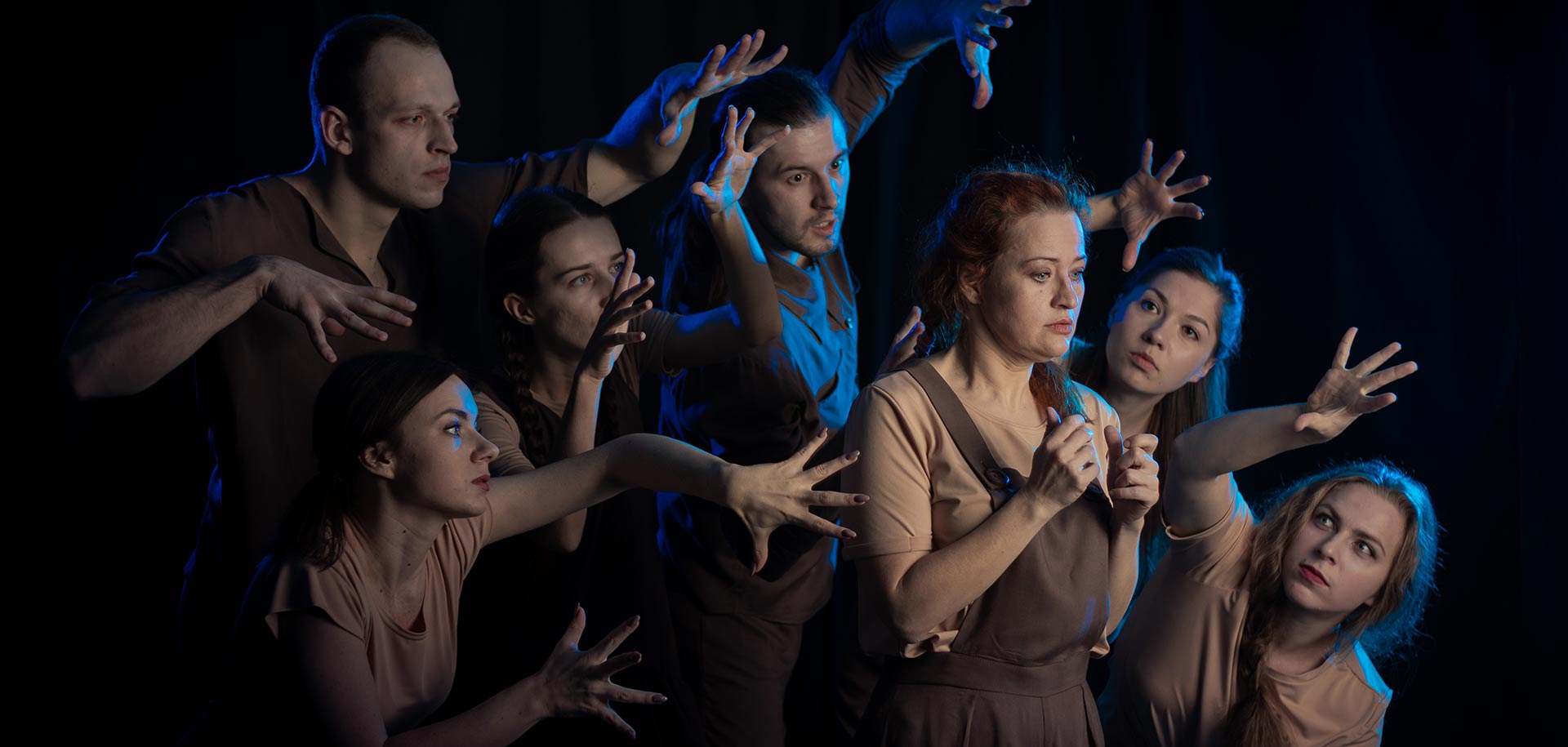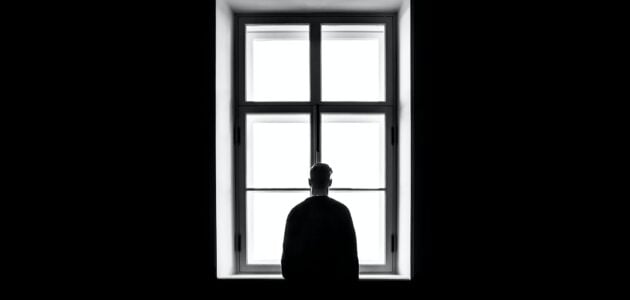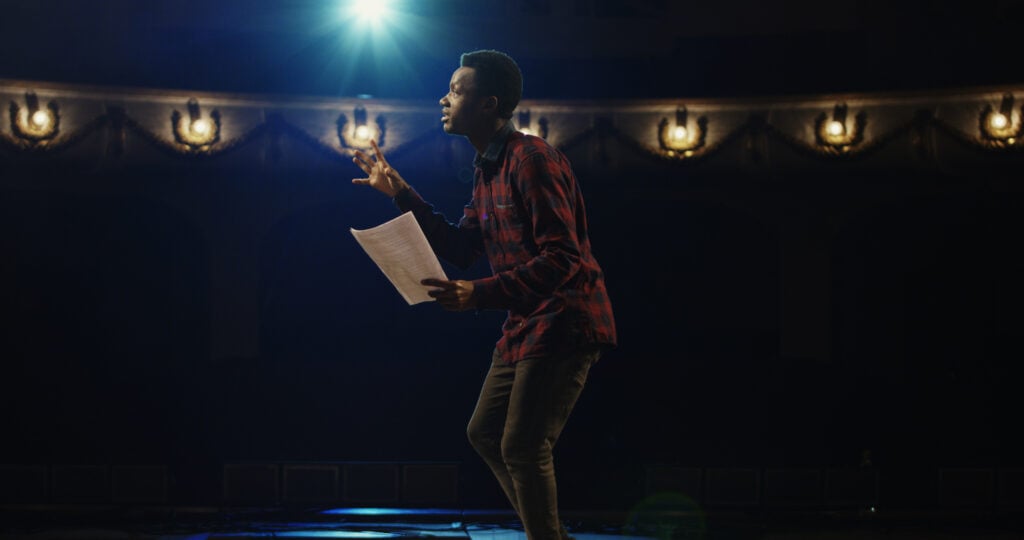

This article is a process for taking any character from a first read to closing night. As with all acting advice and methodology, it draws heavily on a number of influences: acting coaches, method books, personal experience and advice from fellow actors, teachers and directors. And like with all acting methods, use what works for you and throw out the rest. There is no set way for how to act. I think this is the most important thing when it comes to refining and developing your acting process. That being said, this resource will serve as a great toolbox to help you approach any role.
Updated 16 June 2021
I have tried to break this page into sections with relevant subheadings. I recommend reading the entire article first, then re-reading any particular sections of interest.
Note: Acting is not something you master in a few weeks or even a few months. Many of the concepts discussed here can take years to sink in. Be kind to yourself, and don’t worry if some of the concepts are complex, to begin with.
This article takes you step-by-step through my process of ‘how to act’, starting from the early discovery stages to a final performance. I have, however, intermittently added tips and other information throughout the article. The article starts focusing on Acting in a Play (Section A) , as the theatre is still the foundation of most acting training. Every major drama school in the world mainly focuses on theatre and then we move onto Screen Acting (Section B). After that there is a section which looks at the process of acting technique and refining how you become a better actor: Acting Process (Section C). There is no secret for how to act, however, I think this should be of some help. Enjoy:

Open up your play. Take in a deep breath, and here we go. The magic of becoming a character begins. In the early stages of putting on a play, you have to keep an open mind.
Tip: If something you research or investigate offers you a trifle more detail to your character’s world, then it has been worth doing. A detailed and well-understood character means you can walk on stage with confidence and allow the real connection and magic to happen.
Tip: Start a ‘play’ Dictionary. Often in plays, especially classical plays, there is an assortment of unknown words. You can’t speak what you don’t understand—so start a dictionary. If you are working on Shakespeare, definitely check out Shakespeare’s words.

The first read is where you sit around (or, in some cases, stand around) and read the script for the first time. It is usually attended by the whole team, including technical crew. Hopefully by this stage, you have already undertaken some of the steps above. As a bare minimum, you should be familiar with your lines. Under pressure, cold reading can go very wrong, and first impressions do matter. It is not an occasion to show everyone how good you are, but you should aim to be present, clear and focused.
Note on accents: learn the accent, or at least be very familiar with it, from day one. Of course, take on what your director or voice/accent coach tells you as the rehearsal process progresses. However, the more you are comfortable with the accent/dialect to begin with, the better. If you add an accent late in the process it becomes a conscious thought on stage, rather than being a natural element of your performance.
It’s time to play! Early on in my training I would try and give a full performance on day one. I would make quick choices about my character and stick to them. Sometimes this approach can work and people come into an early rehearsal with a clear character in mind and it really clicks and the director is thrilled. However, this process tends to undermine both your character and yourself. It means you are leaving little room for play and experimentation in the rehearsal room. So unless it’s required by the nature of the project (perhaps a short rehearsal period) always make sure that you use your early rehearsal to experiment!
Tip: Many teachers recommend learning lines without emphasis – often called learning lines by rote. I have experimented with this in the past and it really helps. The main goal is to not get locked into any vocal choices too early on. Getting stuck in vocal patterns turns you into a mechanical actor and stops real connection on stage. Play with keywords and phasing in the rehearsal room and don’t start locking in choices until later on in rehearsals.
As you near into the end of the rehearsal period you should begin to lock in choices. By now you should be aware of what is working, and where you still need to go. You should also be absolutely on top of your lines so that they come to you easily and aren’t a thought whilst on stage, and you should have a good sense of your character.
Tip: If your director is happy and you are feeling confident with your character, that doesn’t mean the work is over. Keep discovering more and more detail, both with your text and with your character. There are countless examples of actors who work on long-running shows and are still finding exciting things on closing night!

I have been told by every director I have worked with that an actor’s behaviour in a technical rehearsal is a key factor in re-employment.
Tech rehearsals are long and monotonous, yet they are crucial for marrying the technical and creative side of the production. So don’t chat or say jokes to cast members. And, unless otherwise advised, give a full performance (especially vocally) so that they can match vocal levels to background music and sound.
Tip: Use tech runs as a chance to clarify blocking and to find your light. Finding your light is a great skill for any actor.
So we have arrived! The performances begin. Depending on the show you could be looking at a one-off performance or a 9-month run. Either way, I think the same rules apply. Show after show I have noted the same things. If I am grounded, well prepared and energised, the show improves as a consequence. When I am tired or in a scattered state I will not perform to the same standard. So here are some thoughts on nailing your performance…
Tip: I encourage you to start doing vocal warm-ups early on in the rehearsal process. This will serve you moving forward. If you make a habit of warming up early it will make a huge difference. This is especially important if you are new to working on stage or have had some time away from acting.
Auditioning for a film or TV project is terrifying. Even experienced actors like myself, who have done 100s of auditions, still find it scary to go in for a casting. This is especially true when you are auditioning for a major role, or for an important casting director. We have some incredibly helpful articles on both:
After an initial audition (if you are successful) you will be asked to come in for a callback. This is usually more intensive and you will likely be given some more direction on your work. Once again you have to come in prepared, but you also need to be ready to play. The key to nailing a callback is your ability to take direction.
Congratulations you have booked the job! Whatever you did in your callback worked and you will be heading to set. Hopefully, you have an acting agent who can help you deal with the contracts and your fee, but check out this article if you want to learn more about landing an agent.
Whether you are doing a 50-worder, guest role, or lead role, being on set should be the dream for an actor! That said, it can be a scary place as well, especially while you are still getting used to it. Here are some important things to remember when working professionally:
More on screen acting.

You cannot simply rely on learning the lines and going into the rehearsal room day in and day out. Some actors do this and use natural ability to get by, and if that’s you, then well done. However, unless you are completely comfortable with the character and are confident with thinking on the spot, there is work to be done. If you follow this list of questions you will be in a very position with your character and the question ‘how to act?’ will seem a little easier to answer.
Truth: Often the people who can perform freely without having done this background work are naturally confident and comfortable performers. They also have well trained imaginations and can fall into the world of a character easily.

‘The Line’ might be an unusual heading, but it is amazing how often ‘how to actually say a line’ is missed. There is a mix of different approaches to this and each is valid. I have numbered them below, though it is not essential to complete all the numbered points.
Ultimately we aim to make the line as real and natural as possible. What technique or method you use to achieve that goal is unimportant.
Tip: Play to win. Your character, like in life, believes he or she is right. In any scene they want something— so fight for it. Never play the victim, it is low energy and uninteresting to watch.
Tip: Get to the end of the line. A though travels to the end word in real life, so do the same on stage. Make sure you keep the vocal energy to the end of the line.
Tip: Push through the pauses. Often, pushing through the text and not having long pauses in the text can really change a performance.
The idea of given circumstances is used by a number of theatre teachers within the pedagogical lineage of Konstantin Stanislavski. In her book Uta Hagen breaks it into a six step process which in covers a lot areas we have discussed above. Her book, Respect for Acting, is fantastic. Given circumstances is a core acting technique.
This below list is a combination of questions and given circumstances I have found useful to help further understand my characters. I use the heading ‘Whole Play’ and ‘Scene’ because there are aspects which remain unchanged through the entire play and those that change to the specifics of a scene.
Who am I?
Location and time
Who am I seeing?
Wants and needs
This was spoken about above. However, this set of questions makes it simpler.
Obstacles
All the above information relates to character. In many ways, if you do all this work you really don’t need to get too intellectual with the text, as hopefully, it should come naturally. However here are some useful techniques.
– Keywords: in any line, there are usually one or two keywords. Often we can become monotone on stage and so actually going through your text and picking out keywords is a great idea. This is really important if you are working on a Shakespearean or classical text.
– Rhythm and verse. Often text can be written in verse and a good amount of time must be spent understanding it, again this is especially important for Shakespeare.
– Articulation: often our articulation in day to day life can be lacking. We as actors are performing in large spaces and often with heightened text we have to really get the words into the audience’s ears. So sitting down with your text and marking out end consonants or ‘s’ sounds is crucial.

Well, there is no secret about how to act. Fundamentally it is about working hard and practising as much as possible. Acting isn’t different to any other art form. It requires practice and hard work to be successful. Over time you instinctually learn how to naturally do a lot of what is discussed above. But as it has been said time and time again—the best actors are those that work the hardest. You have to be a detective! Constantly search for more information and detail in the text and in your character. If you can make this process fun it will help.
Storytelling is a fundamental part of our society. And an actor, in whichever medium, be it film, theatre or TV, has the ability to truly bring a story to life. If he or she can transcend into a character and take an audience on a journey that is a wonderful thing to offer the world. It is always important to remember that.
For more ongoing acting advice check out our Acting Lessons page. If you are looking to study more seriously check out our list of Acting Schools to see where is what acting schools are around.